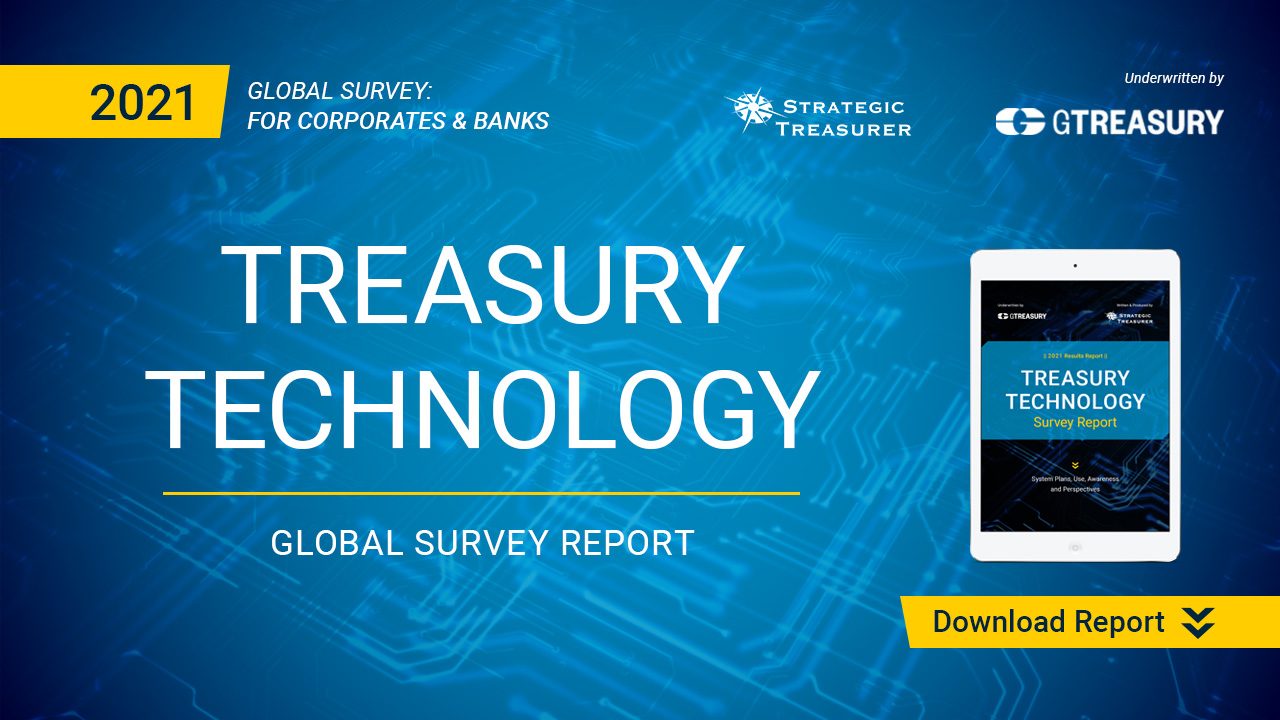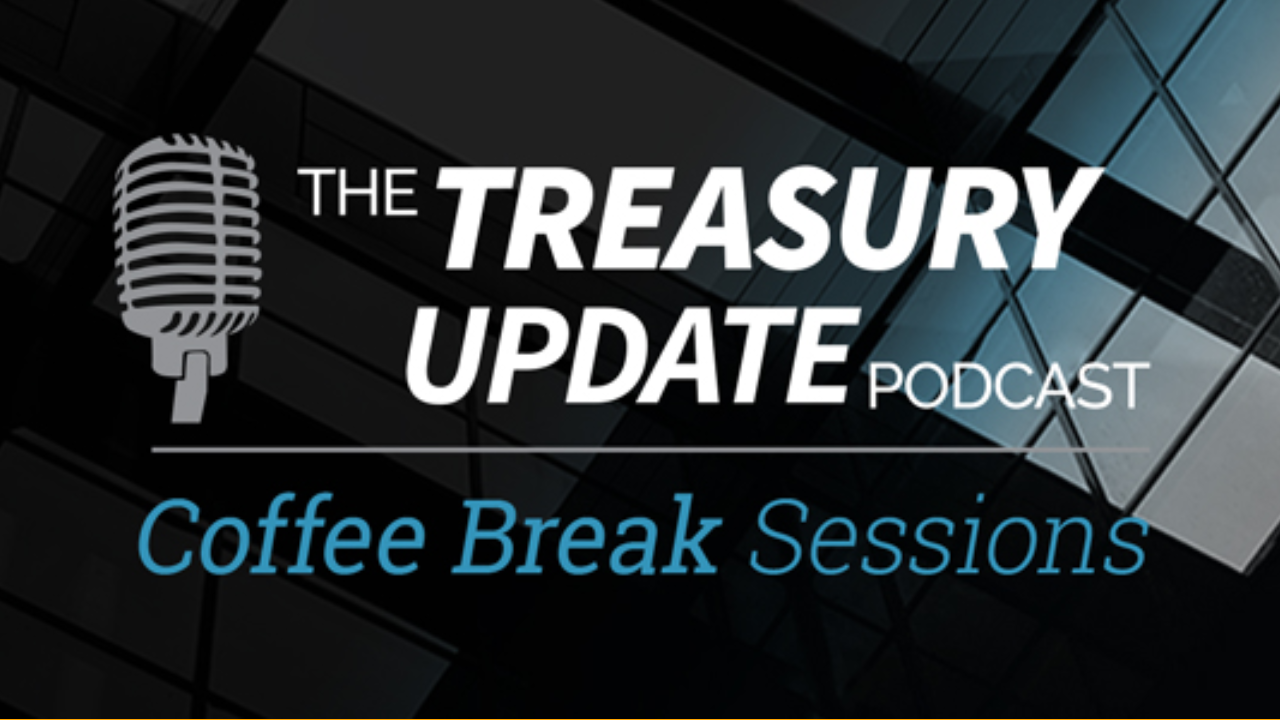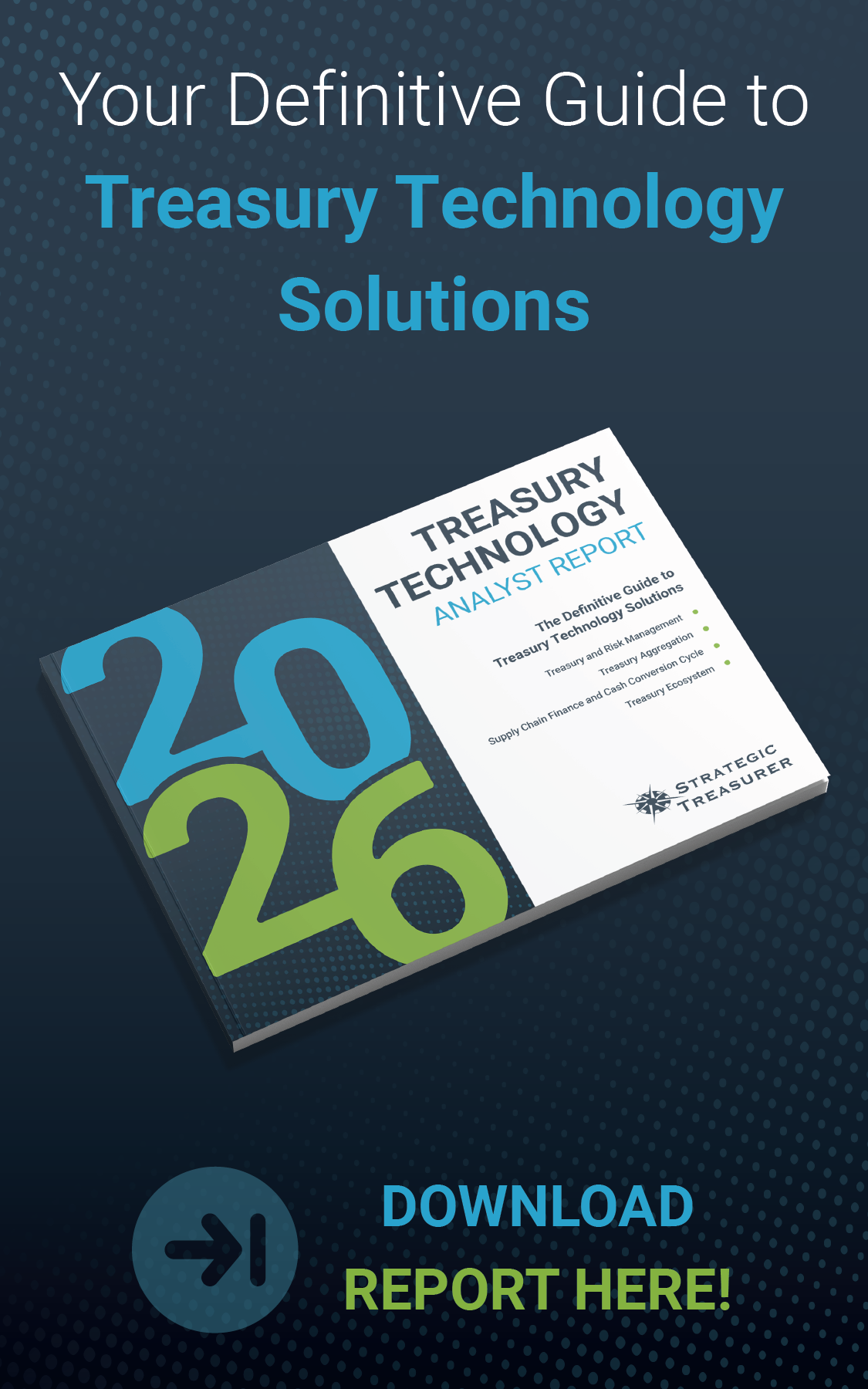
Session 47
Coffee Break Session:
What Is an API?
Host:
Alexa Cook, Strategic Treasurer


Speaker:
Craig Jeffery, Strategic Treasurer


Episode Transcription - (Coffee Break Session Series) - Episode 47 - What is an API
Alexa Cook 0:00
Hey guys, welcome to The Treasury Update Podcast Coffee Break session, the show where we cover foundational treasury topics and questions in about the same amount of time it takes you to drink your coffee. This is your host Alexa, and I’m joined today with Craig Jeffery Managing Partner of Strategic Treasurer, welcome back, Craig.
Craig Jeffery 0:19
Hi Alexa.
Alexa Cook 0:20
Today we’re going to kind of shift back into the technology topics by covering: “What is API?” So, maybe just want to start us off and answer that question for us, Craig?
Craig Jeffery 0:32
API stands for Application Programming Interface. It’s a small program that does functions. Maybe that’s the shortest way of saying it. And a lot of people will use an API today in Treasury and finance for connecting from one system to another, let’s say to pull down bank balances or transactions as they’re happening through their bank account. So, you know the open API’s of today, allow that, as well as to initiate payments.
Alexa Cook 1:04
I know you just gave a couple of examples of when API is used but do you have any other examples or any other answers to when API is used.
Craig Jeffery 1:12
Yeah, API’s have been around for, I think, at least 40 years in different states and versions. As we look back towards kind of the more modern style API’s, they began around 20 or so years ago, but they’ve even developed since then and so we’re looking more at the current API. So, let me give you a couple examples for you know for API’s, maybe some years ago, there would be web services which is a program that supports the use of API’s to get data in and out of usually like SAS systems to pull data out of these databases that you know polled, and has multiple tenants so it’s a program you’d run on your site to pull data out and then you’d usually use another system or process to push that into an internal system or to make it available for another web services routine or service to pull that into another software as a service activity. But API’s really have dominated, of late, or growing extremely rapidly, largely due to banking requirements and banking directions to make it available, Europe’s PSD2 required banks to support that and in the Euro region, and North American most of the rest of the world, the leading banks are all developing these abilities to more easily access your information in a secure manner, origin, and execute or to execute transactions.
Alexa Cook 2:45
Okay, so how is treasury or how can treasury use an API?
Craig Jeffery 2:51
So, an API can be used to quickly validate payment information, confirm the name on an account, so that could be set up within your treasury system within any finance system you have to confirm that it could be plugged into a payment hub to initiate a wire transfer, or low value payment, and it can be set up so that when you open up or when you go into your application, it essentially pings your account, both the most current balance information, or as transaction happens it cycles through and gets that information and loads it into whatever you know database or system you’re using.
Alexa Cook 3:32
Okay, I feel like that also kind of answers the next question which are what are some of the benefits of API? So that you know maybe, treasury validation and payments or some of the reporting that’s done but are there any other benefits of API.
Craig Jeffery 3:45
When you use open API’s and I know this is a short discussion, but the idea of open API’s open banking, open treasury means that these are tools, there’s a set of APIs that a bank for example or a company or a software provider can expose to others or make available so that you can use those APIs to exchange information, move transactions, update activity. So, the benefits are, it’s a very simple setup process, especially where we are now with open API’s it’s extremely simple once you go it’s a very easy process as opposed to a file-based process where you might have to exchange keys, figure out the SFTP setup, test it, make sure it works. APIs are extremely quick at doing that. So that’s a faster setup and it’s highly secure.
Alexa Cook 4:35
So really that wraps up all my questions for today, so I’ll just give a quick overview of everything. So, API is the application programming interface and it’s really a program that does functions or connecting the systems to one another. You said it’s really been around for 40 years and many versions, so it’s had an evolving life over the past, you know 40 years, and it’s really used treasury to quickly validate information or, you know, grab data for reporting, and you said it’s extremely quick and highly secure. So, lots of benefits there. Is there anything else you wanted to cover or say about API’s?
Craig Jeffery 5:12
Yeah, one more thing on that. We do a lot of surveys and tech use and plan. And I think it’s really interesting and perhaps we’re gonna leave it in the show notes, where you can see how banks were much more in favor of API’s thinking ever bigger issue. Corporations, treasures were much more skeptical if you were. And then, as we’ve gone forward, we’ve seen that the adoption of APIs in a one-year period has outstripped what plans for two-year period. So, you know the take up of API’s is exceeding what the expectations are. Normally people are thinking they’re going to do more with whatever the new tech is or the new initiative or control, and the adoption is lower than they state that it will be. This is one of the few areas where we’ve seen it significantly exceed what their expectations were.
Alexa Cook 6:08
Okay, that makes sense and that’s, that’s great that you know APIs are growing so much especially with their applications and Treasury. So, I guess that wraps up today’s episode so thanks Craig for joining me today and thank you to all of our listeners for tuning in. Make sure you join us every first and third Thursday of the month for a new episode and if you have any questions, comments, or just want to connect with us you can find us on LinkedIn. Thanks again, Craig.
Craig Jeffery 6:30
Thank you.




